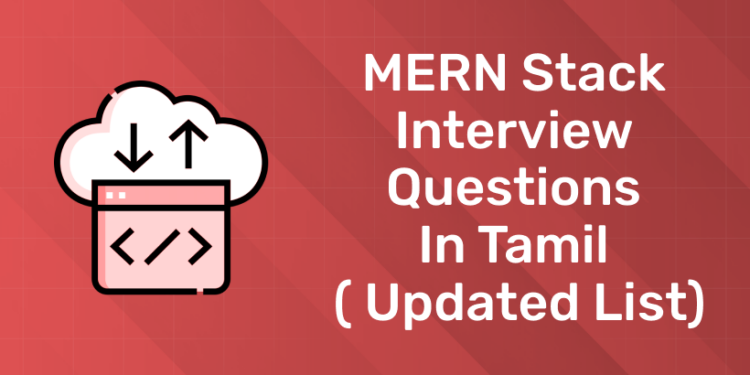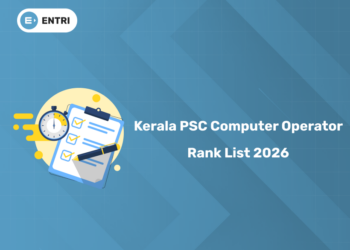Table of Contents
What is MERN Stack?
MERN stack makes use of MongoDB, Express.js, React.js, and Node.js to create a full-stack JavaScript framework for building modern web applications. Here:
MongoDB:
- NoSQL database
- Stores data flexibly
- Uses JSON-like format
- Suitable for scalability
Express.js:
- Web application framework
- For Node.js
- Handles server-side logic
- Manages routing and requests
React.js:
- JavaScript library
- Builds user interfaces
- Component-based
- Facilitates interactive web experiences
Node.js:
- JavaScript runtime
- Executes server-side code
- Powers backend development
- Allows non-blocking I/O operations
Why is the MERN Stack popular?
MERN Stack is popular for the following reasons:
All-in-One Language:
- MERN stack uses JavaScript for both front-end and back-end.
- Developers can work on the whole project using just one language.
Easy Collaboration:
- Using JavaScript everywhere makes it easier to share code and collaborate.
- Developers can be more productive because they don’t have to switch between languages.
Handles Growth Well:
- MongoDB and Node.js are good for handling lots of data and users.
- The stack can grow with the project without major changes.
Lots of Help Available:
- There are many developers and resources available for help.
- Documentation and tools are abundant, making development smoother.
Customizable to Needs:
- Each part of the stack can be adjusted to fit the project’s requirements.
- Developers have freedom to choose what works best for their project.
Great for Making Interactive Interfaces:
- JS is great for building user interfaces.
- It makes dynamic and interactive websites easier to create.
Simple Data Sharing:
- JSON makes it easy for the front-end and back-end to communicate.
- It’s a straightforward way to send and receive data between different parts of the application.
How long will it take to learn the MERN Stack?
The time it takes to learn the MERN stack depends on the following factors:
Baseline Understanding:
- Familiarity with JavaScript basics is essential.
- Understanding of HTML/CSS is helpful for front-end development.
Learning Resources:
- Utilize online tutorials, courses, and documentation.
- Books and video tutorials can provide structured learning paths.
Core Concepts:
- Learn MongoDB basics: CRUD operations, data modeling.
- Understand Express.js: routing, middleware, handling requests.
- Master React.js fundamentals: components, state, props, lifecycle methods.
- Grasp Node.js: asynchronous programming, event-driven architecture.
Hands-On Practice:
- Build simple projects to reinforce learning.
- Experiment with integrating front-end and back-end components.
- Tackle increasingly complex projects as skills improve.
Real-World Applications:
- Work on practical projects to apply knowledge.
- Collaborate with others on open-source projects or join coding communities.
Continuous Learning:
- Stay updated with new features and best practices.
- Explore advanced topics like authentication, authorization, and deployment.
Time frame:
- Basic understanding: Weeks to a couple of months.
- Proficiency: Several months of consistent learning and practice.
- Mastery: Ongoing process, may take years of experience and learning.
| Trending Courses in Tamil | |
| Full stack Development Course in Tamil | Data Science and Machine Learning Course in Tamil |
🚀 Start Coding Today! Enroll Now with Easy EMI Options. 💳✨
Get Hired as a Full-Stack Developer: Master the Skills Employers Are Looking For!
Start Learning With EMI Payment OptionsMERN Stack Interview Questions
1. What is the MERN stack?
- The MERN stack is a combination of four technologies: MongoDB, Express.js, React.js, and Node.js, used together to build full-stack web applications.
2. Explain the role of MongoDB in the MERN stack.
- MongoDB is a NoSQL database used to store data in a flexible, JSON-like format, making it ideal for scalable and high-performance applications.
3. What is Express.js and how does it fit into the MERN stack?
- :Express.js is a backend web application framework for Node.js. It handles routing, middleware, and other server-side logic, serving as the backend component in the MERN stack.
4. How does React.js differ from other front-end libraries/frameworks?
- React.js is a JavaScript library for building user interfaces using reusable components. It employs a virtual DOM for efficient rendering and enables a component-based architecture, enhancing code re-usability and maintainability.
5. Explain the event-driven, non-blocking architecture of Node.js.
- Node.js uses an event-driven, non-blocking I/O model, meaning it executes code asynchronously and handles multiple requests simultaneously without blocking other operations. This architecture enhances scalability and performance.
6. What is JSX in React.js?
- JSX (JavaScript XML) is a syntax extension for JavaScript used in React.js to describe the structure of UI components. It allows developers to write HTML-like code within JavaScript, facilitating component rendering.
7. How do you create a RESTful API using Express.js?
- To create a RESTful API with Express.js, you define routes for different HTTP methods (GET, POST, PUT, DELETE) and map them to corresponding controller functions. These functions handle requests, interact with the database, and send responses.
8. Implement a function in JavaScript to find the factorial of a number.
javascriptcode
function factorial(n) {
if (n === 0 || n === 1) {
return 1;
} else {
return n * factorial(n – 1);
}
}
9. How would you handle authentication in a MERN stack application?
- Authentication in a MERN stack application can be implemented using techniques like JSON Web Tokens (JWT) for token-based authentication, bcrypt for password hashing, and middleware for route protection.
10. Explain the concept of state in React.js.
- State in React.js refers to the data that determines the behavior of a component and how it renders. It is mutable and managed internally by the component, allowing dynamic updates to the UI based on user interactions or other events.
MERN Stack Interview Questions in Tamil for 2024: Conclusion
MERN stack is a technology stack used for web development. It is a combination of 4 technologies as discussed above. The knowledge of MERN stack is accessed in the tech Interview of several IT companies. Hence, it is important to be prepared with important interview questions on this topic. This article has discussed some important questions along with a video in Tamil for the convenience of the candidates preparing for the interview.
🚀 Start Coding Today! Enroll Now with Easy EMI Options. 💳✨
Get Hired as a Full-Stack Developer: Master the Skills Employers Are Looking For!
Start Learning With EMI Payment OptionsFrequently Asked Questions
Why is important to learn about MERN stack for tech interviews?
Learning about the MERN stack is important for tech interviews for the following reasons:
- Industry Relevance:MERN stack is widely used in the industry.
- Full-Stack Skills:Demonstrates proficiency in both frontend and backend development.
- Problem Solving:Interviews often involve real-world problem-solving tasks.
- JavaScript Expertise:Highlights understanding of the JavaScript ecosystem.
- Scalability & Performance:Addresses crucial considerations in web development.
How long will it take to learn MERN Stack?
Time taken to learn this technology depends of several factors. Please go through the above article for details.
What is the full-form of MERN in MERN stack development?
The full form of MERN in MERN stack development is:
MongoDB, Express.js, React.js, Node.js












